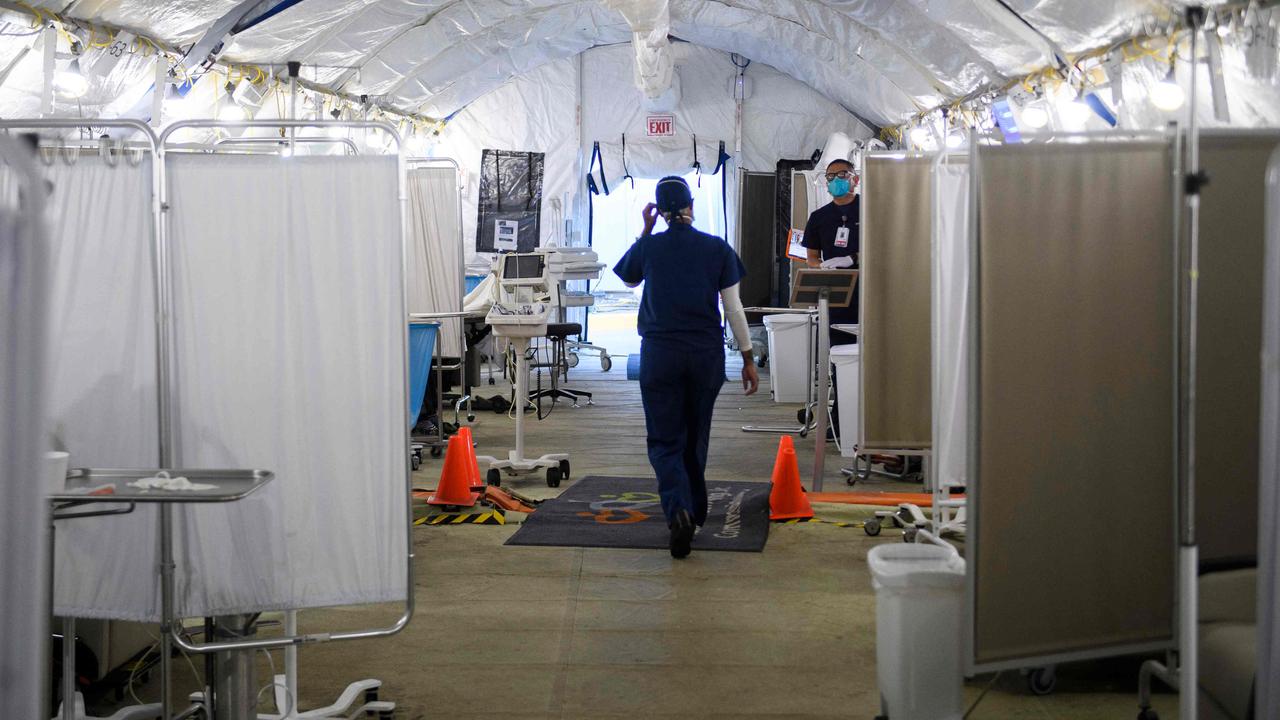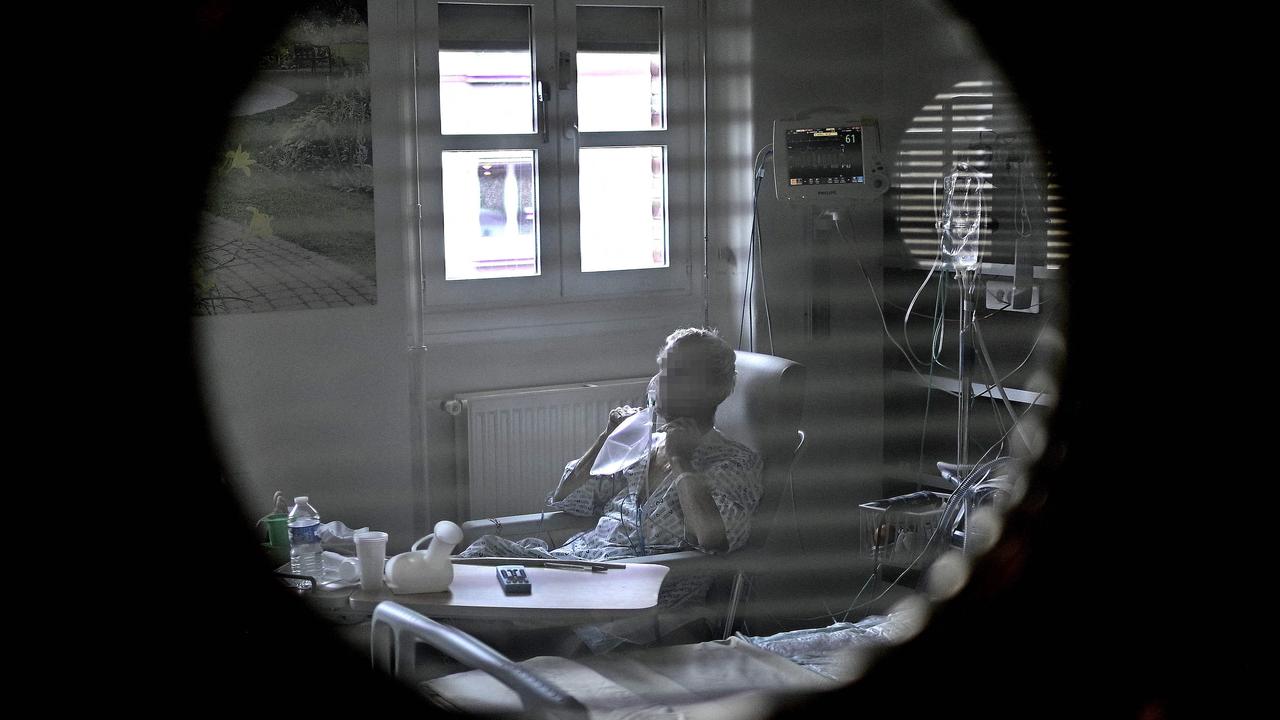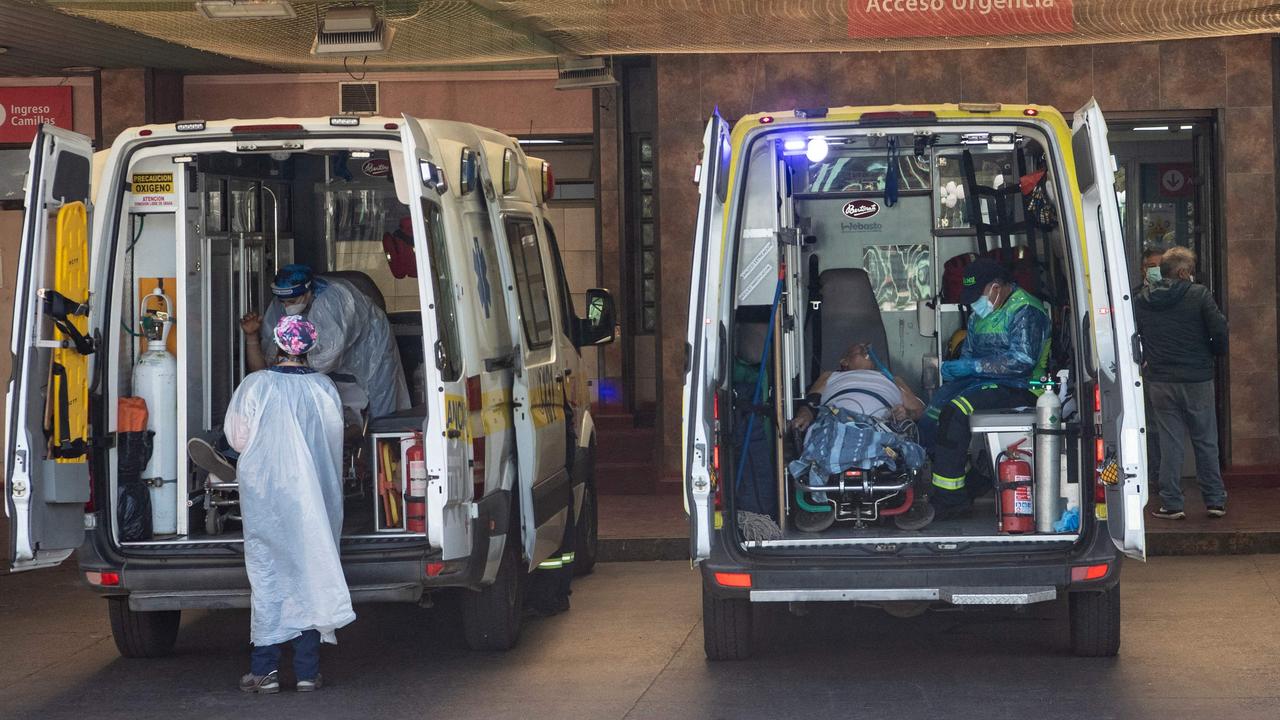New variants of COVID-19 are behaving like new viruses and may derail vaccine hopes
Just as the world begins to gain ground in the war against COVID-19, a terrifying development could see us ultimately lose – with not even vaccines saving us.
At the end of 2020, as the world bid good riddance to a dreadful year, there was a great sense of hope that the impending rapid rollout of COVID-19 vaccines would see us turn a corner.
After several months of illness, death, economic destruction and societal upheaval, the promise of herd immunity via inoculations surely meant life was slowly returning to normal.
But experts have today issued a dire warning that several new “variants of concern” spreading around the globe are acting in new and terrifying ways, and threaten to wash away the precious ground that’s been gained.
And ultimately, it could mean that the war against COVID-19 is lost – even with effective vaccines.
“Put simply, the game has changed, and a successful global rollout of current vaccines by itself is no longer a guarantee of victory,” a cohort of leading international medical and public health experts wrote in an article for The Conversation.
The alarming outlook, penned by academics from University College London, Columbia University, Barcelona Institute for Global Health, Monash University, University of Auckland, McMaster University and the CAPRISA in South Africa, matches with a disturbing trend.
RELATED: COVID variant three times more deadly for those 18-45

Several new ‘variants of concern’
Genetic mutations of viruses occur pretty frequently but they’re only deemed to be ‘of concern’ if they are more infectious than the original, cause more severe illness or are deadlier, or can reinfect.
Scientists knew COVID-19 was going to eventually evolve and mutate – that’s what viruses do. But they thought it would take years, not months.
“We expected the virus to change,” Dr Michael Diamond, a viral immunologist at Washington University, told The New York Times. “We didn’t quite anticipate how quickly it was going to occur.”
Already, 12 months on from the declaration of a worldwide pandemic, there are at least three strains of concern – colloquially, the UK strain, the South African strain and the Brazilian strain.
They’re highly infectious, cause greater illness and are deadlier than what we’ve seen to date – and they impact population groups that have so far gone unscathed.
“COVID-19 variants of concern have changed the game,” the cohort of academics wrote in The Conversation.
“We need to recognise and act on this if we as a global society are to avoid future waves of infections, yet more lockdowns and restrictions, and avoidable illness and death.”
Worse still, those mutations and others that follow could see vaccines rendered powerless to stop the spread and health consequences of COVID.
“If there are high transmission levels, and hence extensive replication of SARS-CoV-2, anywhere in the world, more variants of concern will inevitably arise and the more infectious variants will dominate,” they wrote.
“No one is truly safe from COVID-19 until everyone is safe.
“We are in a race against time to get global transmission rates low enough to prevent the emergence and spread of new variants.
“The danger is that variants will arise that can overcome the immunity conferred by vaccinations or prior infection.”
RELATED: Australia’s vaccine rollout speed ranked 90th in the world

‘Almost like a new virus’
In the US, the rollout of COVID-19 vaccines has accelerated at an astonishing pace, hitting four million daily doses at the weekend and averaging about three million a day.
So far, almost 19 per cent of the population has received the jab … but despite that progress, there’s been a sharp up-tick in new coronavirus cases across the country in the past month.
“I think we still have a few more rough weeks ahead,” infectious diseases specialist and epidemiologist Dr Celine Gounder told CNN.
The cause? The highly infectious B117 variant – also known as the UK strain.
In America, it was first detected in Colorado in December. Now, it’s spread to all 50 states across the country and accounts for an estimated one-third of new cases.
“What we know from the past year of the pandemic is that we tend to trend about three to four weeks behind Europe in terms of our pandemic patterns,” Dr Gounder said.
If that’s the case, the US can expect a sustained and alarming rise in new cases and an onslaught of hospitalisations.
The UK strain decimated Britain and is now tearing across Europe, seeing cases and deaths soar and undermining public health efforts.
“We have to think about the B117 variant as almost a brand new virus,” Dr Peter Hotez, the dean of the National School of Tropical Medicine at Baylor College of Medicine told CNN overnight.
“It’s acting differently from anything we’ve seen before, in terms of transmissibility, in terms of affecting young people, so we have to take this very seriously.”
Epidemiologists estimate the UK variant is 60 per cent more contagious and 67 per cent deadlier than the original virus.
Those infected appear to carry a higher viral load and for a longer period of time.
Nationally, new COVID-19 cases rose for a fourth consecutive week, the Centres for Disease Control and Protection (CDC) confirmed at the weekend.
“We know that these increases are due, in part, to more highly transmissible variants, which we are very closely monitoring,” CDC director Dr Rochelle Walensky said.
RELATED: Horror images show Brazil on its knees

Mutant strains attacking the young
An initial characteristic of COVID-19 was that it didn’t seem to adversely impact young and healthy people who contracted it.
In Brazil, a country ravaged by 13 million cases and more than 330,000 deaths, that’s changed dramatically recently.
The country’s own variant, known as P1, has been devastating and is blamed in large part for new cases and daily deaths reaching record levels.
Like the UK strain, the Brazilian variant is highly infectious.
As a result, hospitals have become overwhelmed with an influx of seriously ill patients and intensive care units are at capacity in many cities.
Among the sick in large numbers are young and otherwise healthy people.
Epidemiologists fear P1 could be a staggering three times deadlier in infected people aged up to 45.
During the initial months of the pandemic, the average age of people hospitalised with COVID was between 60 and 65, health authorities in Brazil reported.
Now, it’s estimated to be about 37.
Similarly, the UK strain has also had a more severe impact on younger people, causing greater rates of illness that last longer.
Unlike the US, Brazil’s vaccine rollout has been slow and plagued by issues, with urgent efforts under way to source supply from abroad.
And cases of the Brazilian strain have been detected elsewhere in the world, including in Canada, Japan and Europe.


Impact on vaccines unclear
How these new variants of concern impact the efficacy of COVID-19 vaccines is under urgent investigation, but there are already early causes for concern.
The third identified variant, the South African strain – known as the B1351 variant – appears to reduce the efficacy of the AstraZeneca vaccine’s protection from mild to moderate illness.
A separate study also suggests the Pfizer and Moderna vaccines don’t work as well against the South African variant.
“Recent real-world evidence from the UK suggests both the Pfizer and AstraZeneca vaccines provide significant protection against severe disease and hospitalisations from the B117 (UK) variant,” the group of academics wrote in The Conversation.
How the Brazilian strain effects vaccines, if at all, is still unknown.
Regardless, vaccines alone may not be enough to defeat COVID if action isn’t taken to slow the renewed rate of infection.
The cohort called for a “global strategy of maximum suppression” to lower the risk of further mutations that lower the effectiveness of vaccines.
“Public health leaders should focus on efforts that maximally suppress viral infection rates, thus helping to prevent the emergence of mutations that can become new variants of concern,” they wrote.
“Prompt vaccine rollouts alone will not be enough to achieve this – continued public health measures, such as face masks and physical distancing, will be vital too.
“Ventilation of indoor spaces is important, some of which is under people’s control, some of which will require adjustments to buildings.”




